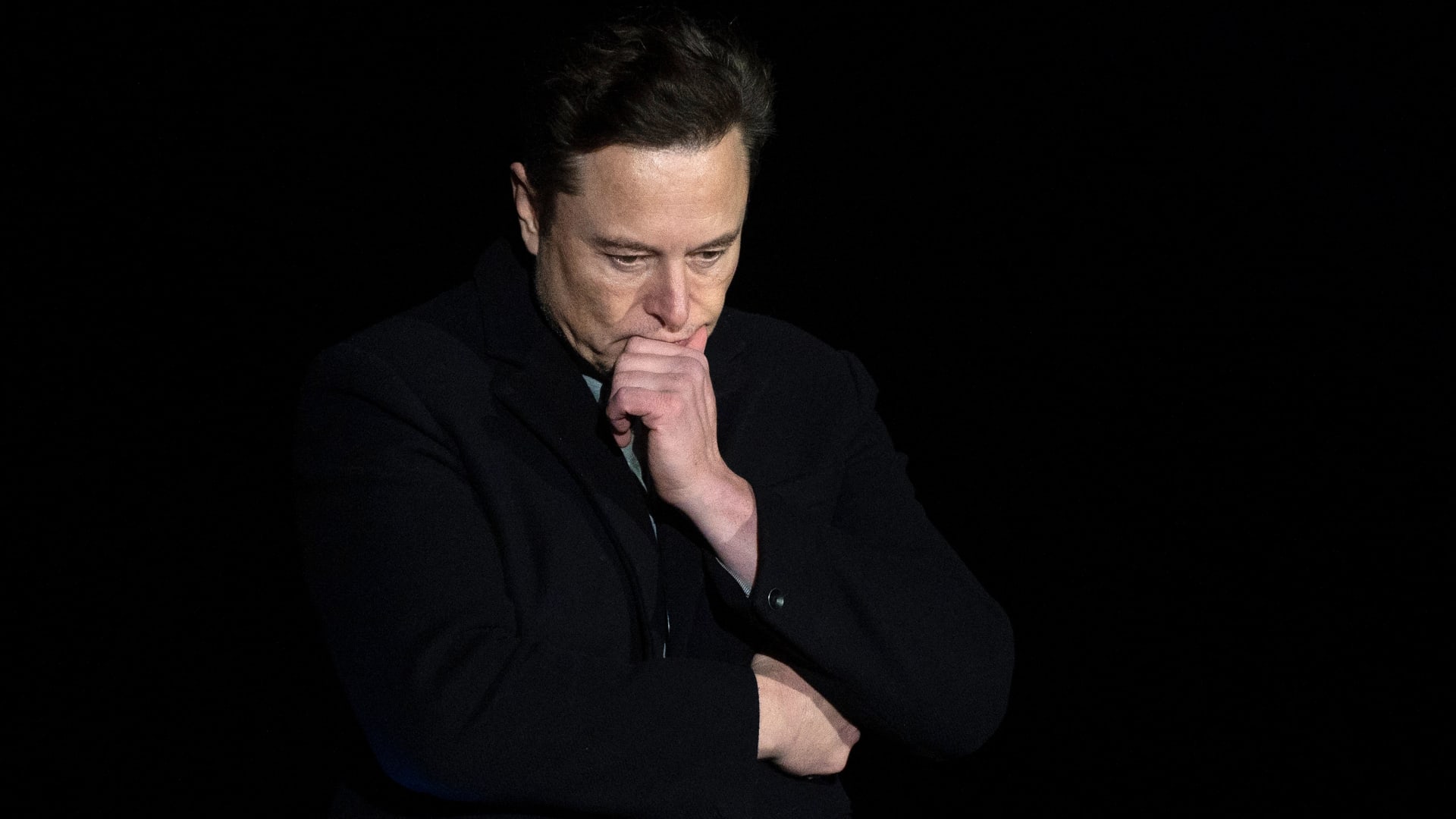Musk backing off Twitter board opens door to hostile takeover

Elon Musk pauses and looks down as he speaks during a press conference at SpaceX’s Starbase facility near Boca Chica Village in South Texas on February 10, 2022.
Jim Watson | AFP | Getty Images
Billionaire Elon Musk’s reversal of his decision to join Twitter‘s board opens the door to a hostile takeover and could lead to additional volatility in the stock, according to analysts.
Musk’s decision not to join Twitter’s board means he’s no longer limited to owning just 14.9% of the company. Now, many analysts suggest the Tesla CEO could bolster his stake and eventually try and establish control.
“[T]his weekend’s change-up spares the company from having to deal with a renegade director tweeting about board-level discussions. That would have been untenable,” Gordon Haskett Research Advisors’ Don Bilson wrote in a note Monday. “The flip side to this is TWTR must deal with a wild-card investor that already owns 9% of the company and has the resources to buy the remaining 91%. As volatile as Musk is, we could see a move like that made shortly. Or we could never see it all. This overhang that TWTR now lives beneath certainly qualifies as a distraction.”
Bilson pointed to Twitter CEO Parag Agrawal’s statement announcing Musk would no longer join the board, in which he warned employees of “distractions” ahead. Bilson told CNBC in a phone interview Monday that the company’s messaging was “sort of ominous.”
Ultimately, Twitter could decide to swallow a “poison pill,” or a shareholder rights plan to defend against a hostile takeover. But Bilson wrote such a measure comes with the risk it “might anger Musk and perhaps it would be best for TWTR to keep that arrow in its quiver for the time being.”
“It’s going to be pretty hard to get committed to an investment thesis because you never know where the winds are going to flow,” Bilson told CNBC. “I don’t think anything is off the menu with this guy.”
Wedbush Securities analyst Dan Ives offered a similar sentiment on Monday morning.
“This is clearly going to be an unfriendly situation,” Ives told CNBC’s Andrew Ross Sorkin on “Squawk Box.”
“Instead of Musk in the boardroom in the corner just saying nay or agreeing on certain board candidates, I think now it really goes to the point that in the coming days I think we’ll start to see if he’s going to go more hostile, more active — that’s what the Street’s focused on,” Ives said.
Twitter’s stock had its best day since its IPO after Musk’s more than 9% stake in the company became public. It jumped an additional 2% the day after when the company revealed Musk would join the board. Shares fluctuated Monday and the unpredictability could continue.
“While it remains unclear what Mr. Musk’s priorities are, we do expect his tweets will receive increased attention, which could drive share price volatility,” KeyBanc analysts wrote Monday following the news.
But Loup Ventures Managing Partner Gene Munster said on CNBC’s “Squawk Box” he thinks “the majority of the drama is over.”
Munster said he based that prediction on the assumption it would have been a smarter decision to go for the takeover immediately if he intended to do that. He also said he thinks taking over Twitter simply isn’t where Musk wants to spend so much of his time.
“Understand that there is something that is important to him around free speech and I think he wants to move that forward. Understand that he sees that as an opportunity as big as electrification and as big as space travel,” Munster said. “But ultimately I think that this [is] just one too many things on the plate for him to take over.”
WATCH: Elon Musk still wants to influence change at Twitter, says Loup’s Gene Munster
